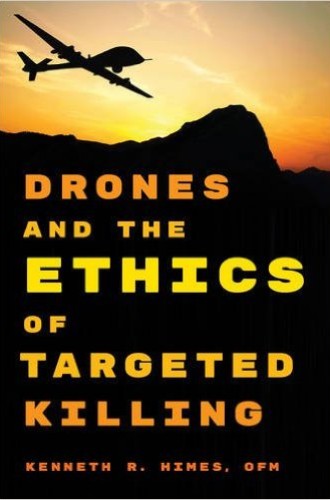The morality of drone warfare
Drones are the United States’ leading counterterrorist weapon. The military has used them for reconnaissance, troop support, and direct attacks in Afghanistan and Iraq. The CIA has used them to attack suspected terrorists, sometimes killing innocent bystanders. Covert drone strikes over the past decade are estimated to have killed between 2,000 and 4,000 people in Pakistan, several hundred in Yemen, and up to 100 in Somalia. These strikes, which are popular with the American public, are likely to become more frequent. But should drones be relied on? Should the public be so supportive? Citizens and political leaders cannot assess the counterterrorist actions carried out in their names if they do not understand the practical effects of drone strikes and the ethical, legal, and political issues surrounding them.
Kenneth Himes has provided a balanced, well-researched, and readable guide to the issues. His central purpose is to bring just war theory to bear on the targeting of individuals who are not on active battlefields. An associate professor of theology at Boston College, Himes dedicates the book to the students he’s taught over the years, and that is fitting: it is the sort of book one would expect from a fair and dedicated teacher because it explains complex topics clearly and presents both sides of fraught moral debates.
Drone warfare raises an enormous number of ethical, legal, and political questions, and no book can cover all of them in depth. Other volumes, such as Bradley Jay Strawser’s edited collection Killing by Remote Control, delve into the ethical issues created by the unique technological features of drones—their remote and increasingly autonomous operations. By contrast, Himes’s major concerns are about who is marked for killing and how the targeting decision is made.






